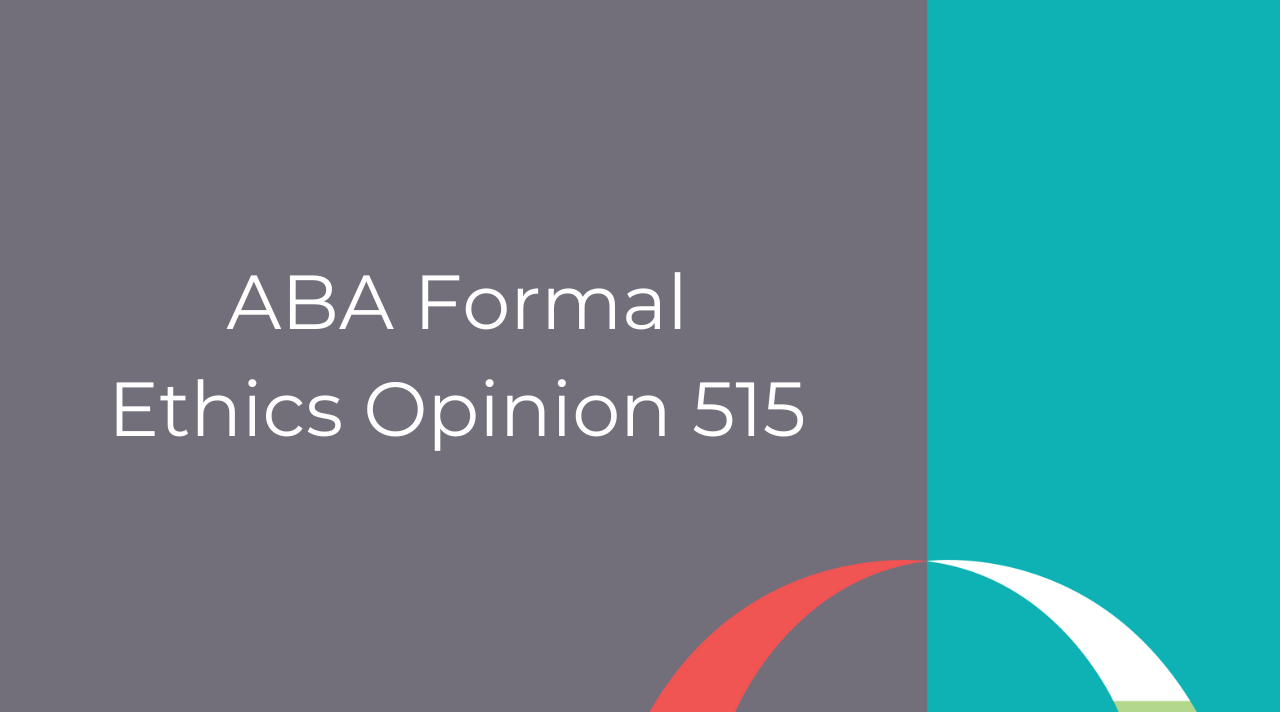
ABA Formal Ethics Opinion 515
The ABA Standing Committee on Ethics and Professional Responsibility has issued Formal Ethics Opinion 515, which addresses whether a lawyer can disclose confidential client information when the client commits a crime against the lawyer or someone associated with or related to the lawyer.
Key Takeaways:
- Implicit Exception to Confidentiality: Under ABA Model Rule 1.6, lawyers have a duty of confidentiality regarding client information. However, this opinion establishes an implicit exception allowing lawyers to disclose relevant information if they or someone close to them is a victim of a client’s crime.
- Reporting to Law Enforcement: A lawyer who is a victim of financial fraud, violence, or theft by a client can report the crime to the authorities, even if the information would normally be protected by Rule 1.6.
- Protection for Associates & Family: If the crime is committed against someone associated with the lawyer (e.g., staff) or related to the lawyer (e.g., family member), and the lawyer witnesses the crime, disclosure is also permitted.
- Scenarios Covered:
- A client physically attacks a lawyer or their staff.
- A client steals from the lawyer.
- A fraudulent “client” scams a lawyer into depositing a fake check.
- Limits on Disclosure: Lawyers must limit the disclosure to only what is reasonably necessary for the investigation or legal action.
- Impact on Representation: Once a lawyer reports a client’s crime, it is likely that they must withdraw from representation due to a conflict of interest under Rules 1.7 & 1.16.
This opinion clarifies that lawyers are not obligated to remain silent when they are victims of client crimes. It balances the need for confidentiality with the right to seek justice and protection when harmed by a client.
Significantly, California’s confidentiality requirements, in both the Rules of Professional Conduct and California statute, are quite different than the ABA Model Rules and would dictate a different analysis and a different result in these circumstances. Lawyers admitted in multiple jurisdictions should be aware of these differences when analyzing compliance.
Read the full opinion here: Link to Formal Opinion 515
